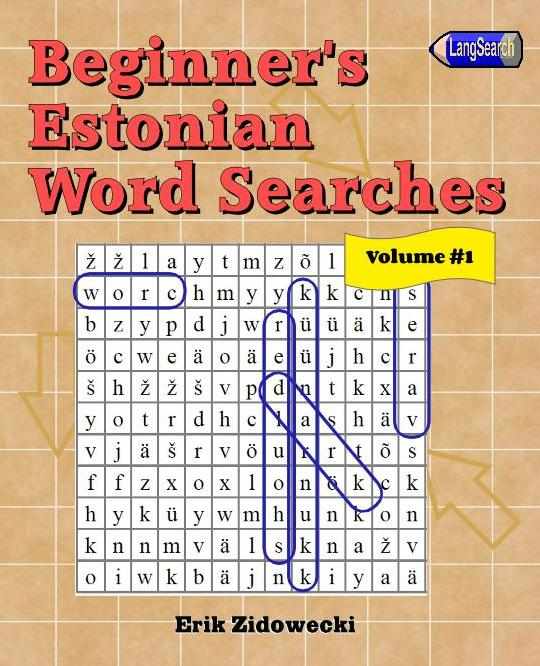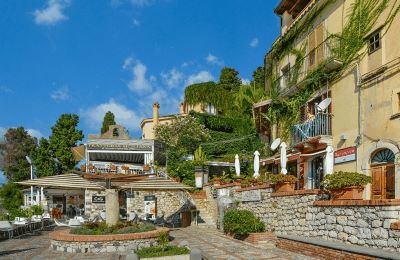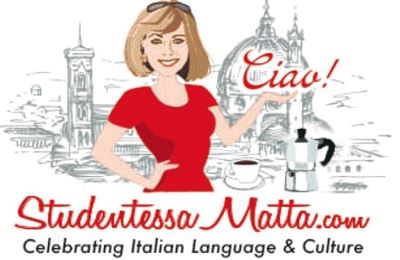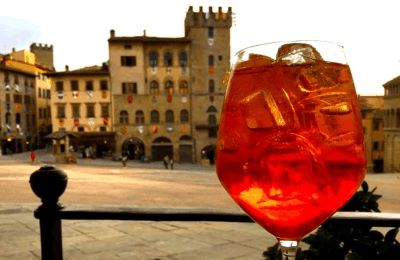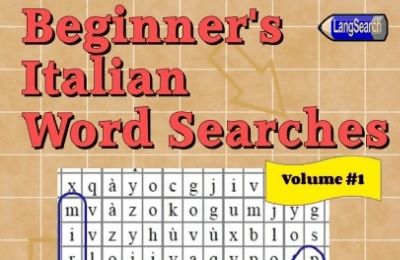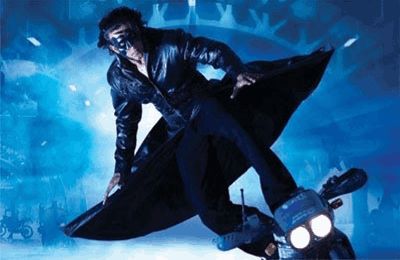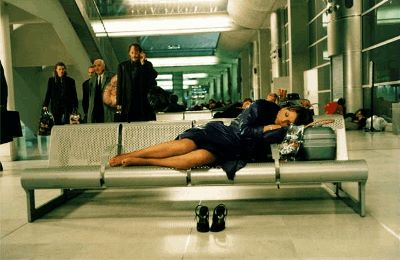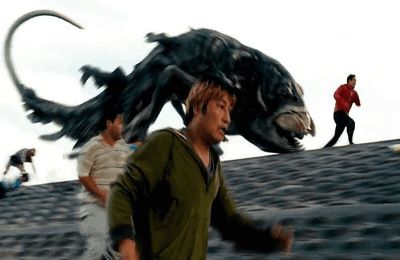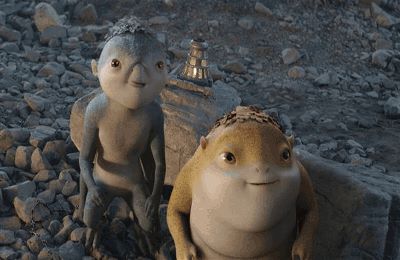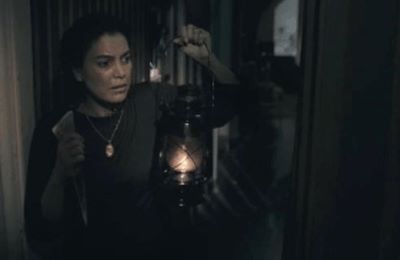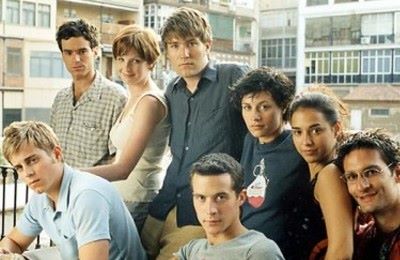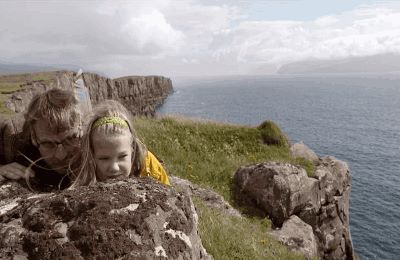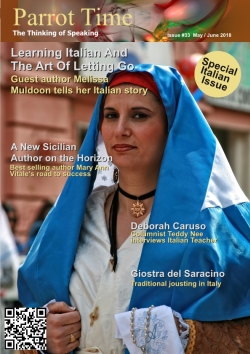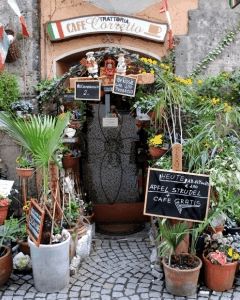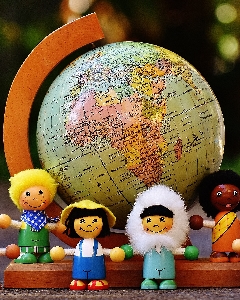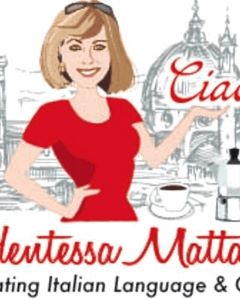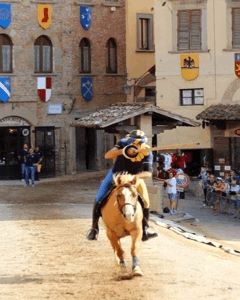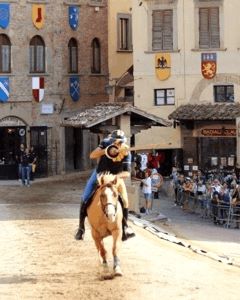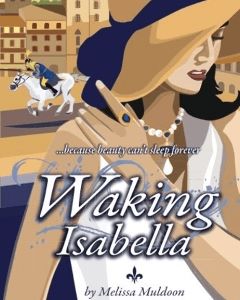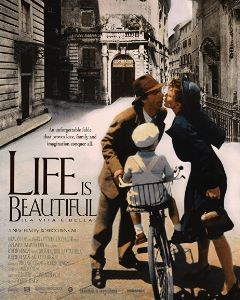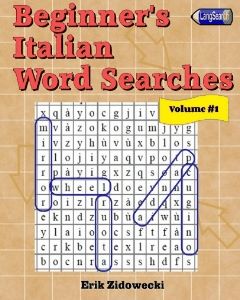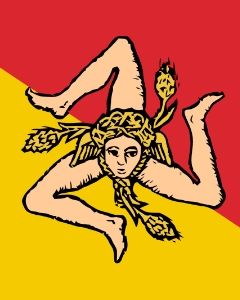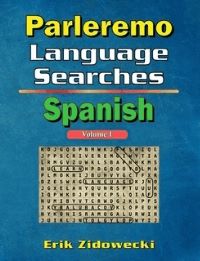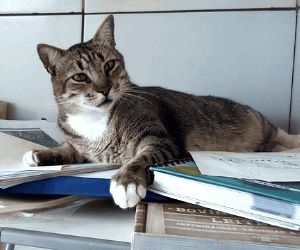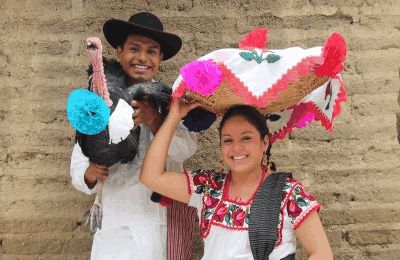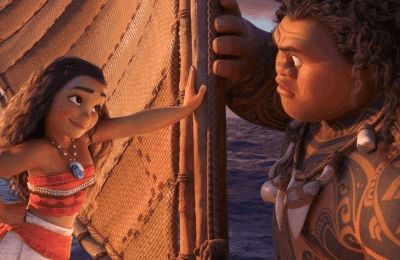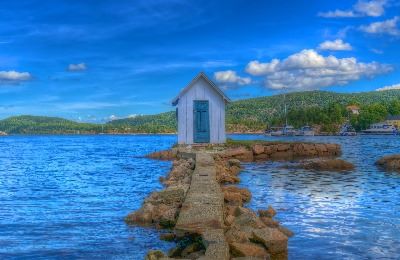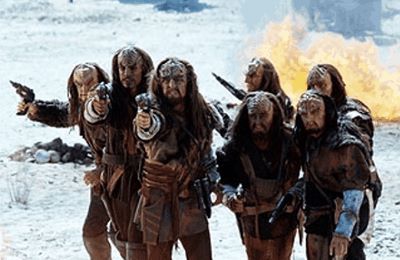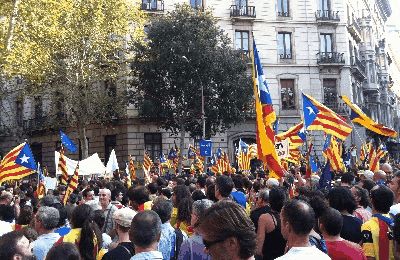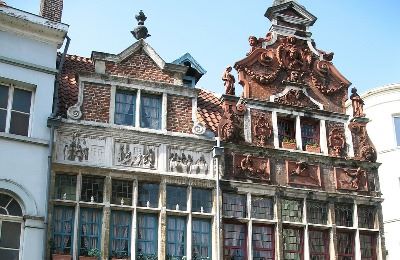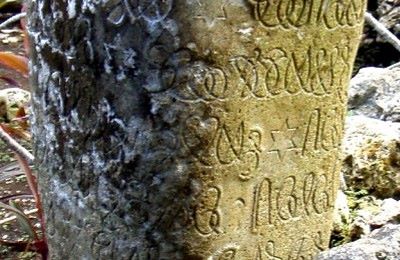At the Cinema
Life is Beautiful

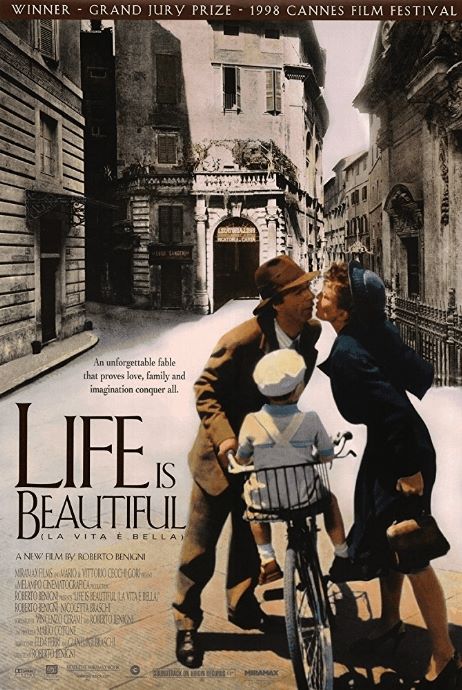
Life Is Beautiful
1h 56min PG-13 Comedy / Drama / War 12 February 1999 (USA) Country: Italy Language: Italian / German / English For this special Italian issue, I am reviewing "Life is Beautiful". When selecting a film, I have constantly avoided this one without remembering why. For some reason, I decided to watch it when I looked for an Italian film this time. The film starts out with our main character, Guido, and his friend, Ferruccio, travelling the Italian countryside on their way to Rome, where Guido's uncle, Eliseo, lives. He has promised them jobs. Guido is a very cheerful man, always making jokes and acting like a buffoon, but there is a sharp mind and wit behind his foolishness. When they stop the car at a farm to do some repairs, he manages to make an impression on a young woman and her older sister, Dora, who he addresses with "Buongiorno, Principessa!" (Good day, Princess!). I find it difficult to rate such a film because it is almost two different stories. I loved the first part and thought it was a highly entertaining romantic comedy. But there is the second, much darker part... Once they reach Rome, they meet up with Eliseo and the next day, Guido starts work as a waiter and Ferruccio starts working for an upholsterer. Guido ultimately wants to open a bookstore, but manages to accidentally completely enrage the city official in charge of handing out such permits, Mr Rodolfo, who declares he will never get one. Guido has the odd capability of easily getting into trouble then somehow getting back out it almost without effort. However, that does not mean his actions do not affect others. 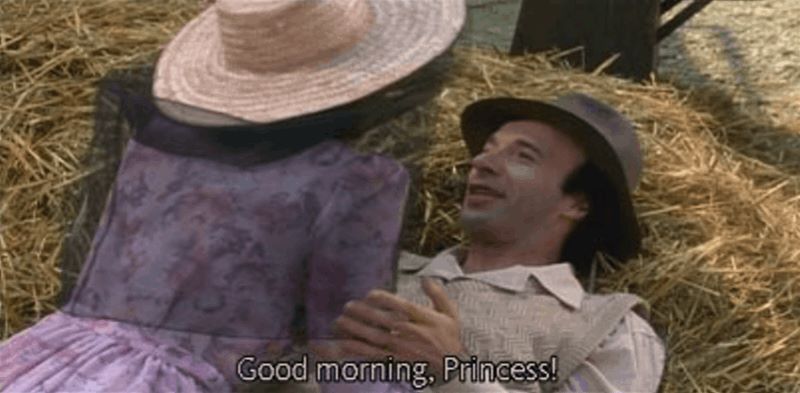 Dora falling on Guido when they meet Over the next few days, we watch him learn about the people and patterns of his neighbourhood. He also meets Dora a few more times, sometimes by chance, sometimes by very deliberate means, because she works as a school teacher. We learn that Dora is unhappily engaged to Rodolfo, who treats her poorly. Falling in love with her, Guido performs one of his manipulations and manages to steal her away from Rodolfo after a night at the opera during a rainstorm. Then using his charm, imagination, and what he has learned of his neighbourhood, he gives Dora a magical walk home. 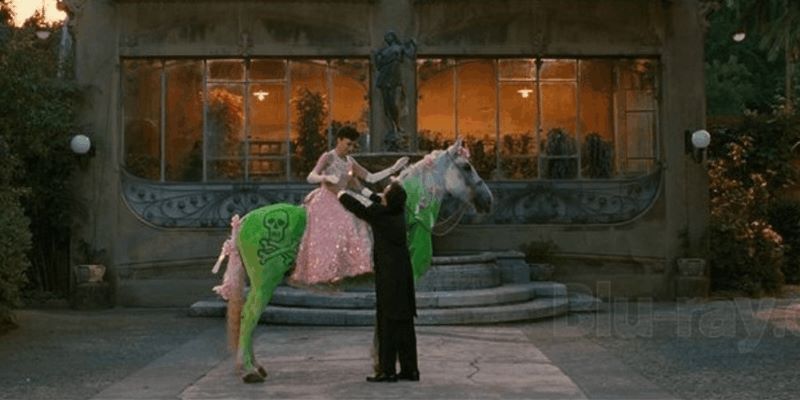 Guido rescuing Dora on his green horse After that, Dora has fallen in love with Guido as well and is even more unhappy at the idea of marrying Rodolfo. But in typical romance film cliche, Guido manages to rescue her from her own engagement party on the back of a green horse, and they marry happily, have a son, Giosuè, and manage to open a bookstore. This is all in the first part of the film. At this point, I was reminded why I avoided the film. 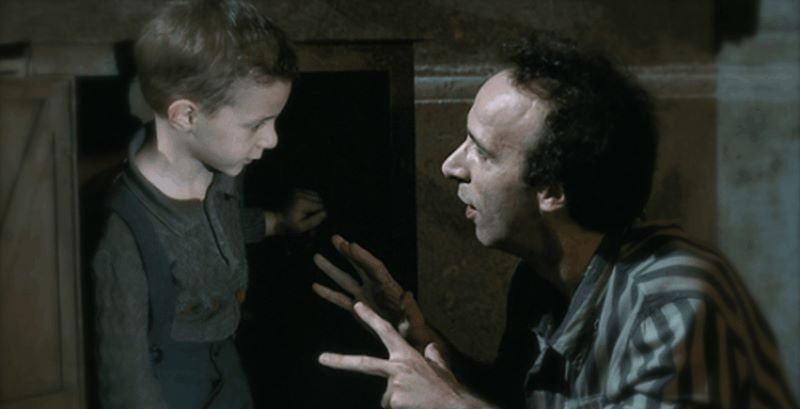 Guido explaining "the game" to Giosuè We jump forward several years to where Giosuè is a young boy and WWII has begun. Hitler is having Jews collected and taken to camps, and we learn that Guido is a Jew. You can guess where this is going. He and Giosuè are dragged from their homes one day and boarded onto trains along with Guido's uncle and other Jews from the area. When Dora finds out what has happened, she goes to the Nazi station and insists there has been a mistake. When they deny it, she finally announces then that she will be coming too, and the put her on a separate train with women. Guido understands the danger he and Giosuè are in, and that they are likely to be killed. However, Giosuè has no idea, so Guido starts explaining things in playful and humorous ways. He manages to convince Giosuè that they are playing a big game with everyone else, and he must do as he is told in order to get the prize, a real tank. 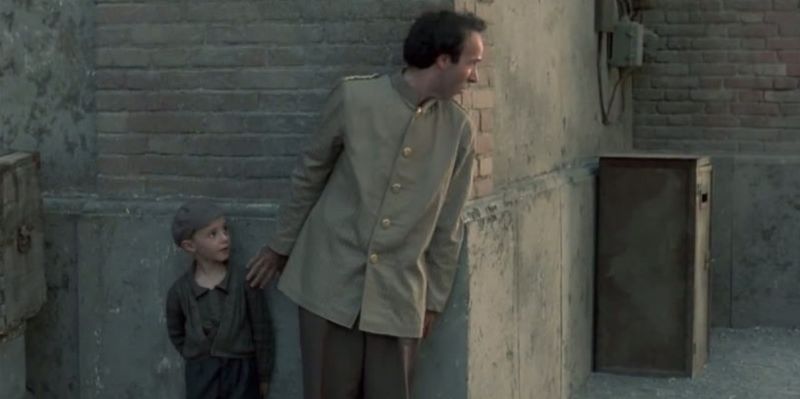 Guido leading Giosuè to a place to hide It is only through Guido's imagination and wit that Giosuè never realizes what is truly happening, so when the concentration camp is finally liberated and American's in tanks role in, Guido's innocence is preserved, and he believes that he has one the first tank that he sees. The film is all in Italian, with only a little German. I find it difficult to rate such a film because it is almost two different stories. I loved the first part and thought it was a highly entertaining romantic comedy. But there is the second, much darker part which, to be honest, made me very uncomfortable at times to watch. That is how well it was done. 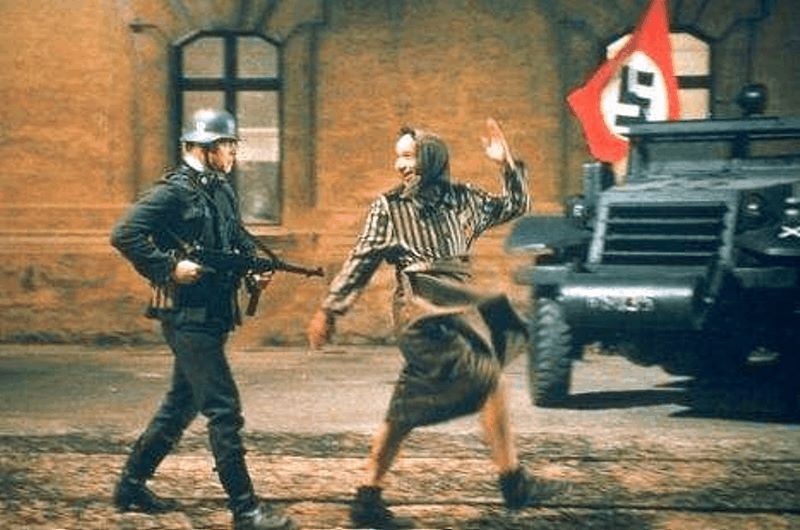 Guido making Giosuè laugh one last time I would have to say I encourage everyone who likes some fanciful comedy to see the first part, then shut it off. If you are ready to embrace the darker story, then definitely walk the second. But be warned that there is a definite duality to the film. As an extra tie-in, the film was shot in Arezzo, where the pictures for the "In Focus" section this issue were taken and the Giostra del Saracino occurs (page 30). |
| At The Cinema - Life is Beautiful | ||||
| Writer: | Erik Zidowecki | |||
| Sources: | ||||
| ||||
| All images are copyright Melampo Cinematografica; Cecchi Gori Group Tiger Cinematografica | ||||
All images are Copyright - CC BY-SA (Creative Commons Share Alike) by their respective owners, except for Petey, which is Public Domain (PD) or unless otherwise noted.
|
Looking for learning materials? Find entertaining and educational books for learning a language at Scriveremo Publishing. Just click the link below to find learning books for more than 30 languages!
| |
comments powered by Disqus
